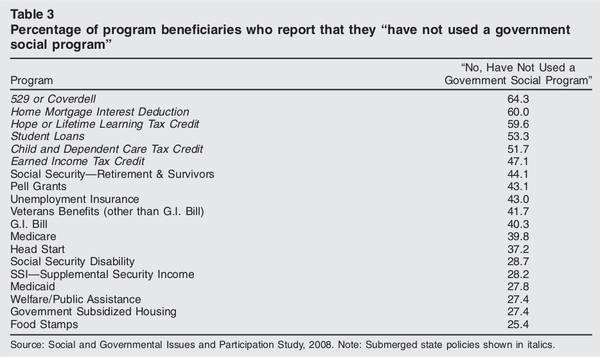One of my friends wrote me the other day complaining about the tendency this cycle for both sides in the presidential race to take their opponents statements blatantly, almost obscenely, out of context. Obama’s recent “You didn’t build that” gaffe was exhibit one. Despite behind behind Obama, and hating the way the gaffe has been weaponized, I felt compelled to defend the media’s focus on gaffes – at least, some of them.
There’s been no shortage of coverage of the gaffes. The BBC (of all outlets) has perhaps the most hyperbolic coverage, saying in their Daily Commute podcast that the entire election was being framed by nine words: “I like to fire people” and “you didn’t build that.”1
Dave Weigel weighed in, writing
OK, let’s step back and take a whiff of the bullshit. The last few gaffes that have captured our precious news cycles have been fabricated. That’s not a pejorative statement, just fact. Democrats made sure that people saw Mitt Romney say “I like being able to fire people who provide services to me,” and “corporations ARE people, my friend.” The Romney campaign, RNC, and Super PACs have skipped from clipped Obama quote to clipped Obama quote like Super Mario jumping from mushroom to mushroom. The GOP infrastructure has spent much more time and money on TV ads, making sure voters see this stuff.
And nobody thinks that these gaffes are entirely legit. Nobody believes that the outrage over them is real—because it isn’t!
My friend blamed the media, telling me “It’s not inside baseball, it’s fantasy baseball.” Which, in narrow terms, is true. Romney was making pretty unobjectionable points – first, that he liked a economic system where he was able to fire people who failed to provide services as promised, and that corporations are made out of people – and when you levy pecuniary punishments on “corporations” you end up hurting a set of people, most of whom are of the 99%. Obama’s statements were only slightly less innocuous – that any business depends on a workforce educated with public funds, transportation infrastructure constructed with public funds, and a communications system invented and subsidized by various government entities. Only the extremes of the recently resurgent anti-government right keep Obama’s statement from being a widely-held truism.
So I by no means disagree with Weigel’s critique of the gaffe-ecosystem. Calling the quote Obama’s “biggest blunder yet” and a “lapse of self-discipline” as Sully does goes too far. What was Obama’s mistake? That he said something 90% of the country agrees with, but failed order his clauses so that they’d be impossible to take out of context? You put people in front of a camera almost every waking hour for nine months and you’re going to get moments like these.
But I have a hard time being upset, even when the gaffes hurt my own favored candidate, because it could be so much worse. We could be taking about whether Al Gore needs a makeover and whether he kisses his wife too much or whether John Edwards spends too much on his haircuts. In the history of stupid election obsessions, these gaffes actually serve a salubrious function.
Romney, whether he would like the framing or not, does represent the corporate party, and the one fighting for unregulated, unlimited, and anonymous contributions by corporate entities. And though I doubt he gets a visceral thrill from firing people, his primary rationale as a candidate is his supposed business acumen, gained at Bain Capital – a company that, in many cases, would purchase a company and then pass rounds of layoffs and close factories. In both cases, the gaffes were not literally true but served to highlight and frame real and important issues in the campaign – issues that had begun to pass from the front pages with the decline of Occupy Wall Street.
Obama’s gaffe is actually my favorite, even though I’m terrified that the GOP attack ads may be working. For one, it lets bring up my favorite chart in the history of charts:
Most of the ones at the top of the list deserve some sympathy. It’s not immediately obvious to most well-adjusted people (i.e., those who don’t follow religiously follow public policy debates) that the mortgage tax deduction or the Child and Dependent Care Credit are government programs, even though the difference between getting a check from the federal government or that same amount knocked off your tax bill is purely psychological. But the 44% of people on Social Security who don’t believe they’ve used a government program? Seriously? It immediately calls the mind back to one of the more hilarious Anti-ACA banners (apocryphal or not):
The second reason I love the Obama gaffe is that it’s not often presidential campaign stray near an age-old question of political philosophy – in this case, the difficulties of a free society to garner appreciation (and henceforth loyalty) from its citizens. Cue Machiavelli:
To that written above another difficulty is joined, which is that the state that becomes free makes partisan enemies and not partisan friends. All those become its partisan enemies who were prevailing under the tyrannical state, feeding off the riches of the prince… One does not acquire partisan friends, as I said, because a free way of life proffers honors and rewards through certain honest and determinate causes, and outside these it neither rewards nor honors anyone; and when one has these honors and those useful things that it appears to him he merits, he does not confess that he has an obligation to those who reward him. [Discourses I.16]
In other words, nobody credits their success in a meritocracy to the political system, but rather to themselves. So you get Jack Gilchrest, the business owner staring in Romney’s ad, taking millions in government contracts and loans. And his response to it is spot-on: “As far as I’m concerned, I’m getting some of my tax money back. I’m not stupid, I’m not going to say ‘no.’ Shame on me if I didn’t use what’s available.” The whole answer is about him, about him being smart enough. It’s about his business acumen.
I’m not saying the quote by itself is unreasonable. It is no more hypocritical for Gilchrest to accept available tax credits and government contracts despite his opposition to them than it is for Democrats to form their own Super PACs despite their opposition to unlimited corporate money. Everybody plays by the same rules. But like highways, like the internet and public education, like Social Security for 44% of its recipients, the role of government becomes invisible except when it’s negative. I doubt Gilchrest even thought about those contracts and tax credits when he became involved in the ad, and while taking the money may not have been hypocritical, putting yourself in an ad saying “I built this without government help” when you didn’t build that without government help is hypocritical.
There are two issues here. The former is about the size and role of government, and whether the government is too active in some areas or active in too many areas. That’s a debate we need to have, and one we have quite often, particularly since 2008. The second one is the one I’m interested in, because it is the issue Obama was trying to raise and the problem Machiavelli identified in the quotation above: Why does government get so little credit for what it does do? How can a free way of life earn itself partisan friends?
If Machiavelli knew an answer, he didn’t write it down in plain sight. The Prince contains advice for a tyrant in similar circumstances, but (small-r) republicans are out of luck. I don’t have one either. Converting tax spending to actual spending – that is, converting the employer health insurance tax deduction and the mortgage tax deduction into actual checks that say “HI I’M FROM THE FEDERAL GOVERNMENT” in big letters at the top would be a good first step. But Social Security checks basically already that, and almost half the people who receive them don’t get it. Mere publication won’t do either; every stimulus-funded project and most urban road construction projects post big billboards detailing the amount of money being spent and the source of that money, both local and federal, and I doubt that’s increased much appreciation towards public spending for our roads and water systems.2
But as long as people see only their taxes and remain blind to the things for which those taxes pay, it will remain incredibly difficult to have a real and honest debate over relative priorities. It’s hard to effectively balance, say, cutting defense spending v. cutting “other government spending” – let alone cutting taxes v. cutting “other government spending”! – when one doesn’t realize what that “other government spending” entails. For that reason I like the idea of a taxpayer receipt, though in all honesty I doubt it’ll work any better than construction billboards. In all likelihood, it’ll just make people upset about how much money we spend on defense foreign aid [thanks Mattc] 3 And so we’ll still be stuck with people trying to get the government out of their Medicare.
- Though I would argue “Corporations are people too” will be the Romney gaffe with real legs. ↩
- Though it probably made gripes about the source of construction-related traffic woes more accurate. ↩
- Even though most people think we spend twenty-five times more than we do and think it should be lowered to a level still ten times more what we currently spend. ↩




2 Responses to Why I liked the “You didn’t build that” Gaffe